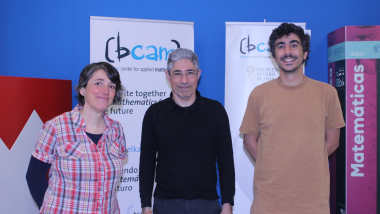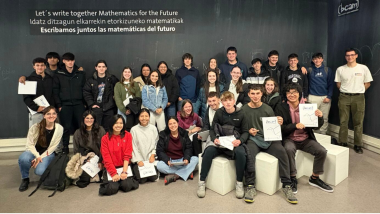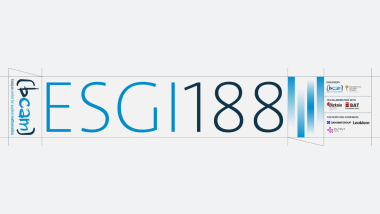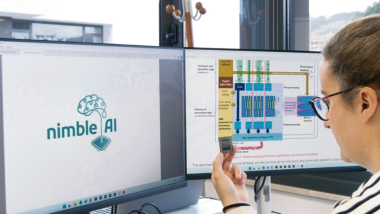Antsa Ratsimanetrimanana will defend his doctoral thesis on Wednesday, October 30th
- The defense will take place at the “Sala Adela de Moyua” of the Faculty of Science and Technology of the UPV/EHU, located in Leioa, at 12:00 pm
Antsa Ratsimanetrimanana holds a Bachelor’s degree in Mathematics, obtained at Université de Bordeaux (France) in 2013, and a Master’s degree in Mathematical Engineering, Modelling and Statistics obtained in 2015 at the same university.
He arrived at the Basque Center for Applied Mathematics – BCAM in the summer of 2015 to do an internship within the Quantum Mechanics research line, which he finally joined in 2016 as a PhD student. His PhD thesis, Equilibrium and Transport Properties of Quantum Many-Body systems, has been supervised by Ikerbasque Research Professor Jean-Bernad Bru (BCAM-UPV/EHU).
On behalf of all BCAM members, we would like to wish Antsa the best of luck in his upcoming thesis defense.
PhD thesis Title: Equilibrium and Transport Properties of Quantum Many-Body systems
This thesis is a study of equilibrium and dynamical properties of macroscopic quantum many-body problems. An important part of the manuscript concerns the study of heat and charge transport properties of fermions on the lattice. This refers to the derivation, from first principles of quantum mechanics and thermodynamics, of the Ohm’s law, first published in 1827 by G. S. Ohm, and of the heat equation, the well-known (classical) equation introduced by J. Fourier in 1807. A complete derivation of the heat equation from quantum mechanics is still not achieved, but we prove here some preliminary results on this non-trivial issue. By contrast, the study of charge transport properties of fermion systems on the lattice is largely developed in this thesis. In particular, we give a mathematical justification, for non-interacting free-fermions, of recent experiments (in 2006 and 2012) which have shown that the classical Ohm's law remains valid as atomic scales are reached even at very low temperature. Equilibrium state refers here to the notion of KMS state. We also set that the classical KMS condition can be derived from the (quantum) KMS condition for the so-called Bose-Hubbard model.
Related news
About the center
About the center




